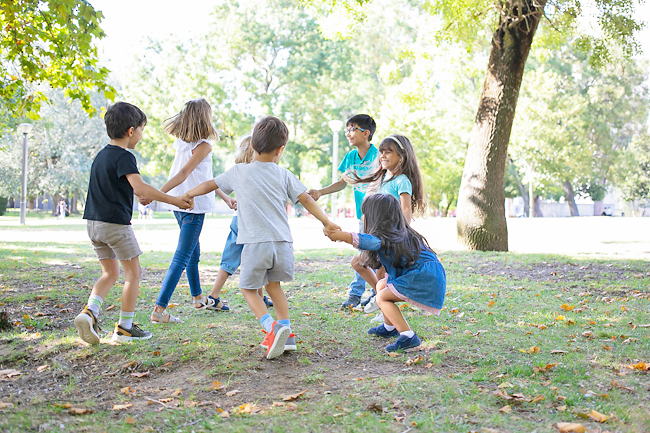Meghan Leahy
THE WASHINGTON POST – Q: How do you teach a six-year-old gratitude? Because of the pandemic, we haven’t taken him to volunteer at food banks, although he has picked out toys and food donations online that we send to charities on his birthday and during the holidays. But he’s usually a “glass half-empty” kind of kid who is rarely happy with what he has.
He has never experienced hunger or insecurity at home. He can’t fathom what he doesn’t see or hasn’t experienced, so it’s a futile exercise to talk about how lucky he is. We’ve discussed showing him news footage of Ukraine or areas of famine to clearly illustrate how much worse life can be, but we decided it would be too much for him at this age.
Any suggestions for how to gently teach the concept of being thankful for what he has instead of always looking for more?
A: There is a lot to unpack here, but let me first give you credit for caring about food banks, Ukraine and areas in famine. It’s easy to turn away from these issues because it’s all too much to witness, so caring is an important first step.
As for teaching the concept of gratitude to a six-year-old, let’s look at some developmental norms and how gratitude fits into them. A six-year-old can show tremendous patience, empathy and consideration for others, but don’t confuse that with full maturity.

Children this age are still very much consumed by their own needs, desires and views. They often don’t like to be criticised and can be quite moody, and their feelings are easily hurt, especially by their friends. When they are generous, they are very generous. But that can disappear quickly.
Take these ideas and you will find that you have many different types of six-year-olds.
The typical six-year-old is ready to learn how to give for the sake of giving, but the global topics you are choosing may not be the path you want to go down. (Many also argue there’s no such thing as true altruism, but that’s a different conversation.) Famine and war, although awful and important to know about, can feel daunting for adults with mature brains, so it’s not appropriate to worry six-year-olds with these issues.
I am not implying that we hide the world’s troubles from our children. I am instead suggesting that we look closer to home when it comes to practicing generosity and gratitude, such as: an elderly neighbour who needs help with his lawn; a family with a new baby who would appreciate a meal; a local library that needs volunteers; or a local food bank that needs people to deliver meals.
Whether it be weekly, monthly or yearly, you should include your son in these endeavors, because, at the end of the day, helping alongside you will create the deepest effects. Being a role model trumps giving lectures every time.
Speaking of lectures, there is a conspicuously strong tone of guilt in your letter. You seem to have enough awareness to know that showing him images of war, suffering and starvation is inappropriate, but I want you to know that guilting any person into caring is not a good path to take.
We don’t want your son to feel badly that “he has never experienced hunger or insecurity at home,” and I am wondering whether his “glass half-empty” position is plucking a deeper nerve in you. What is really behind this worry? Is this a story from your own childhood? It is worthwhile to determine why this bothers you so much, because once you understand yourself, you may be able to respond rather than react, especially with lectures, guilt and exposure to horrors.
Use the strengths of a six-year-old to your advantage here. Six-year-olds like to be industrious and independent, and they feel good when they contribute in a real way. If he isn’t happy with what he has, can you set up real work at home – not so he has to earn everything, but so he can begin to see everything he has? Can he select toys and clothes to give away? Can he create lemonade stands to raise dollars for issues he cares about?
Rather than just combating his lack of happiness with guilt, look at your family’s larger dynamic.
Does he complain and get a tonne of attention for it? Are you always reminding him of how lucky your family is? Are you always negating his emotional experiences, forcing him to double down on his complaints? Zoom out and take a good look at the back-and-forth, and see what role you are playing in his Eeyore ways. Whatever you do, don’t start clicking on images of war and starvation. Good luck.







